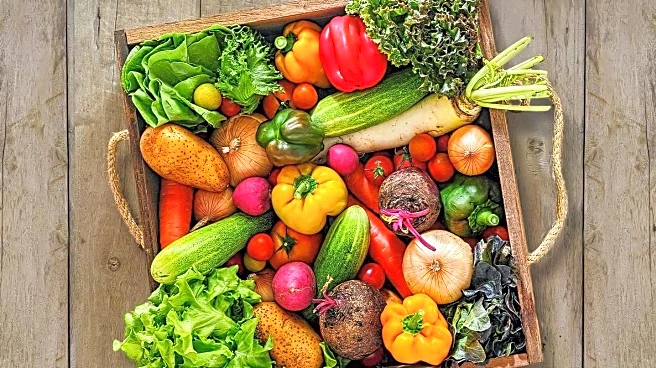What's Happening?
In Northern Colorado, a school district is celebrating the state's agricultural heritage by offering themed lunches throughout October. The initiative, known as 'Colorado Proud School Meal Month,' features meals made entirely from ingredients sourced within Colorado. Schools in Fort Collins, Loveland, Windsor, and other areas are participating in this program, which aims to educate students about the importance of local agriculture. The district is also promoting an Agricultural Science Pathway program, providing resources and education in animal science and agriculture to encourage future generations to pursue careers in these fields.
Why It's Important?
This initiative underscores the significance of agriculture in Colorado, a state that often does not receive national recognition for its agricultural contributions. By integrating local produce into school meals, the program supports local farmers and producers, potentially boosting the state's agricultural economy. It also serves as an educational tool, teaching students about the origins of their food and the importance of sustainable practices. This could foster a greater appreciation for local agriculture among young people, encouraging them to consider careers in this vital industry.
What's Next?
The program may inspire other school districts across the U.S. to adopt similar initiatives, promoting local agriculture and sustainability. As students become more aware of the importance of local food sources, there could be increased interest in agricultural education and careers. Additionally, the success of this program might lead to expanded partnerships between schools and local farmers, further integrating agriculture into educational curricula and community activities.
Beyond the Headlines
The program highlights ethical considerations in food sourcing, emphasizing the benefits of supporting local economies and reducing carbon footprints associated with transporting food over long distances. It also reflects a cultural shift towards valuing local and sustainable food practices, which could influence broader societal attitudes towards consumption and environmental responsibility.









